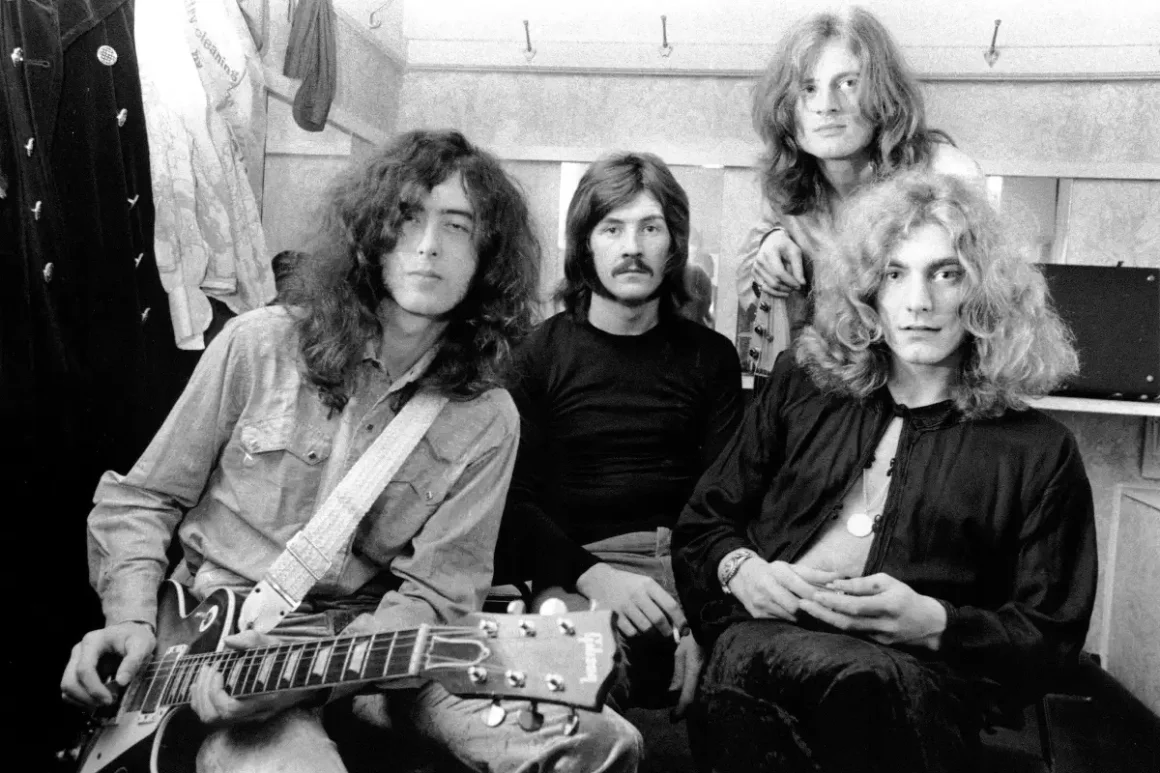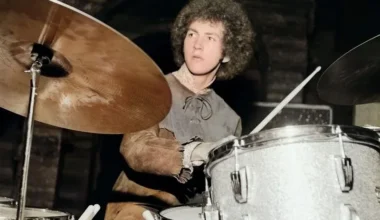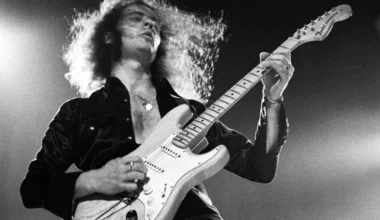Led Zeppelin unexpectedly showed up at a stag party in the middle of the flowery 1960s zeitgeist, akin to St. John’s Ambulance personnel. They served as a stark wake-up call and were frightening and sobering. The following generation had to come to terms with things getting a little bit heavier, a little bit darker. It became more difficult if you were a rock musician when they blasted out their debut single, “Good Times Bad Times.”
Although there had always been masters in the scene, four of them had formed a single group and were going to add orchestral arrangements and occultism to it. Dave Grohl once wrote, “Jimmy Page is freakier to me than Jimi Hendrix.” Page was a genius under a spell, but Hendrix was a genius on fire. For them, Zeppelin albums and concerts were akin to exorcisms. Hendrix, Jeff Beck, and Eric Clapton had blown people’s minds, but Page elevated the experience to a whole new plane and did it in such a wonderfully flawed and human way. He has the bluesman’s old-timey, stoned guitar style.
The frontman of Foo Fighters concluded his Rolling Stone evaluation of the Led Zeppelin axesmith by stating: “Page uses his guitar as an instrument in more ways than one.” It functions as a kind of emotional translator for him. And that’s really what makes the band so appealing on all fronts. They elevated the blues to new compositional heights by combining its firm underpinnings with Franz Schubert-esque flourishes. That much is for sure. Additionally, they gave rock a new emotional edge that was menacing and dark, akin to the man in Caspar David Friedrich’s painting “Wanderer above the Sea of Fog.”
The band’s 1975 sixth album Physical Graffiti included the song “Kashmir,” which perfectly embodied this strategy. The song, written over three years by Page and Robert Plant with assistance from John Bonham, demonstrated their attempt at rock music. They aimed to avoid going overboard, as Plant believed they were prone to. Instead, they built the song around a straightforward blues riff before incorporating elements of exotic music.
Plant often compared “Kashmir” to the ideal Led Zeppelin. Every band member, at some point, declared their love for the song. Page’s happiness stems from his belief that his riff work was so fundamental. It opened up possibilities with an enormous and expansive scope that were eventually realized. “I guess ‘Kashmir’ must be the answer. He told Rolling Stone, “I knew this wasn’t just something based on guitars.”
“And every guitar part would be on there as well,” he continued. The orchestra had to sit there and mirror those other sections, acting out the guitars’ actions with symphonic coloration. John Paul Jones composed the music for it. However, I told John, “This is how it has to be.” I both heard and knew it. The cry eventually became a resounding success and is still among their best-known songs.
The song was inspired by various sounds from North Africa and came about as a result of Plant and Page’s trip to Morocco. It amazed the band. “Kashmir” had such intensity that, even after it was finished, Page said, “we knew there was something hypnotic to it.” We couldn’t even describe such a quality.” As is true for many listeners, he initially found it to be “frightening.”








